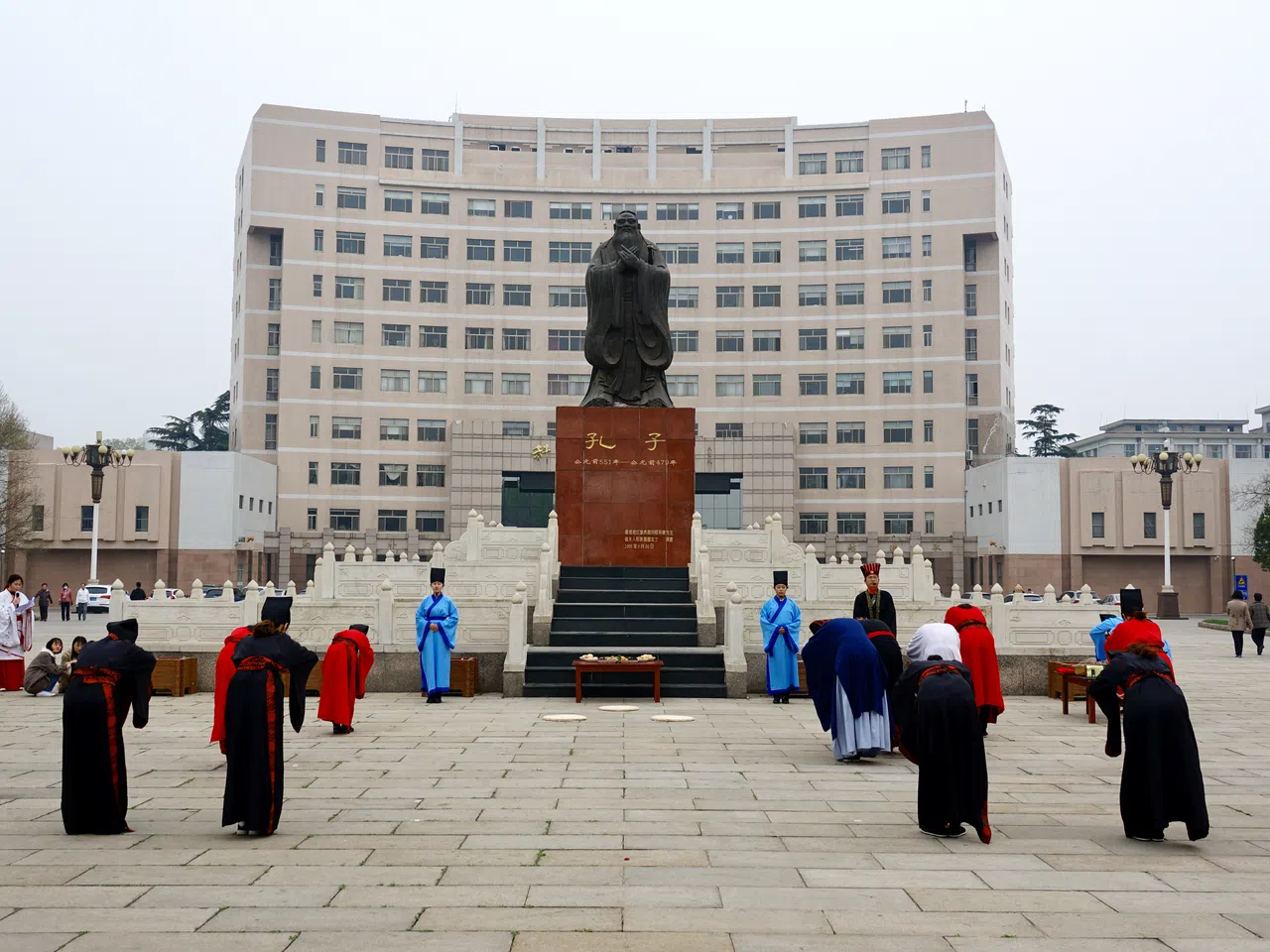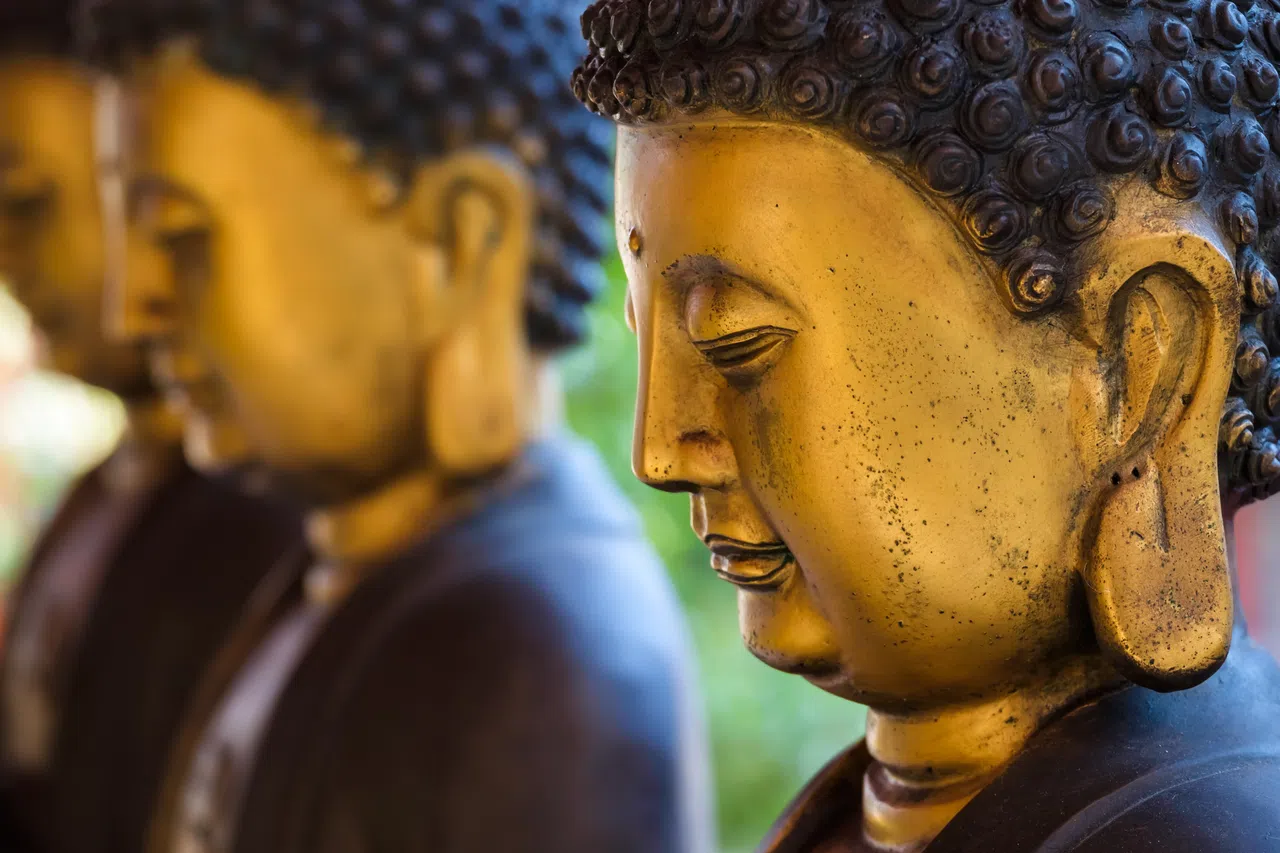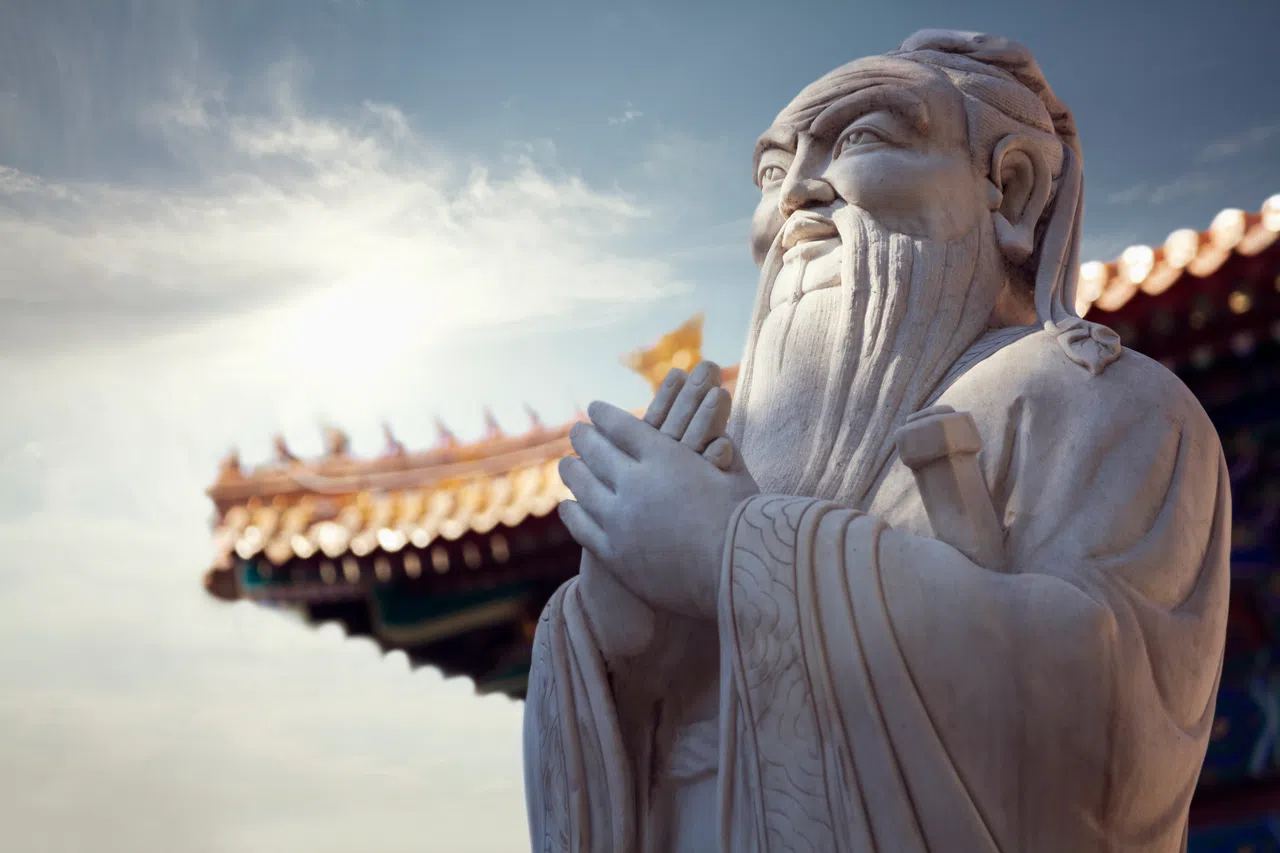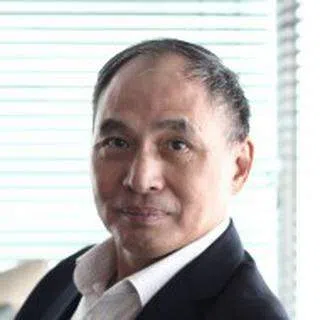China needs a ground breaking "New Culture Movement"
Does modernisation equate to abandoning tradition? Will copying-and-pasting Western models work? What can China learn from its 5000 years of civilisation?

Lastingness must be rooted in civilisation. To stave off pervasive Western values and blind admiration of the West-an ethos that has reigned supreme since the 1980s-China's senior leadership began underscoring in recent years the importance of the "four confidences": confidence in China's chosen path, China's guiding theories, China's political system and China's culture. Of the four, cultural confidence is no doubt the most essential quality, for without which, the rest can neither stand nor work. China's path, its doctrines and institutions are grounded in its culture.
The localisation of Western knowledge
China will have to learn from its more advanced and experienced Western counterparts as it modernises. But learning new things is not about abandoning the old ones; it's about building on and improving the existing. Imbibing indiscriminately and transplanting wholesale Western values and practices is highly erroneous. Human societies share universal values, but practising these values in the Western way may not work for China. Even the different Western countries adapt as they need.
China did not learn from the West or other countries until late-Qing. Before that, China has always prided itself as being the most advanced civilisation until it was defeated by foreign powers, especially Japan, a nation once under China's "pupillage".
Since the end of the Second World War, too many developing countries have become blindly imitative of the West. Imitation did not translate the Western values into tangible gains, but created stressors that reduced societies to poverty and plunged some into anarchic conditions. Those that did not copy-and-paste but adapted Western learning are immensely successful. Western academia has given shape and structure to the experiences and lessons. But little intellectual consensus is seen in developing countries (including China) because learning-or not learning-from the West is more often a political than theoretical decision.
Understanding the past offers clarity. China did not learn from the West or other countries until late-Qing. Before that, China has always prided itself as being the most advanced civilisation until it was defeated by foreign powers, especially Japan, a nation once under China's "pupillage". But espousing Western fundamentalist principles has only resulted in failure. Only those that know how to pick and choose and adapt their knowledge to China's realities, or that "localise" their knowledge have a better chance of succeeding.
Sun, Mao, Deng and the adoption of Western systems
This premise is proven true since Sun Yat-sen's days. (Given the centrality of politics, my essay will focus on the learning of political thoughts and practices.) Knowing from the beginning that producing Western replicas would not work in China, Sun Yat-sen and his comrades envisioned the "five-power constitution", a hybrid model combining the Western tradition of dividing powers into three branches (legislative, executive, and judicial) with two additional branches of government drawn from China's imperial past (examination and Censorate (supervision)). But even so, the Western multi-party parliamentary system that Sun tried introducing soon failed. He then proposed looking to Soviet Russia for the organisational principles that would revitalise his revolutionary party. Since then, both the Nationalist Party (Kuomintang) and Communist Party began emulating Soviet Russia, although their different learning methods have yielded different outcomes.
Deng and his CPC successors did not slavishly adopt Western systems wholesale, even though many aspects of the Western system were deeply interwoven into Chinese institutions. In matters of development such as the rationale, theories and systems, China kept its autonomy.
Former Chinese Communist Party leader Mao Zedong (or Mao Tse-tung) resented and resisted fundamentalism. In fact, Mao's aversion to making carbon copies of Western models entrenched his leadership during the revolution. He condemned the foreign dogmatism epitomised by Wang Ming and other Bolsheviks. Instead of accepting the fundamentalist version of Marxism as blueprint, Mao adapted it to Chinese conditions. He succeeded in revolting. Whereas, the post-revolution and newly formed Soviet Union saw itself as the authentic embodiment of Marxism-Leninism and sought to impose its ideological system on other communist countries.
Mao once again balked at fundamentalism. When the Soviet Union centralised its powers, he decentralised extensively. Although both countries were supposedly planned economies, they operated very differently. This also led to the divergent fates of the Soviet Communist Party and the Chinese Communist Party.
Deng Xiaoping took the same effective route. Within the communist fraternity, Deng first overcame the conventional mindsets and ideologies that abhorred the West and repugned Western institutions. Then, he decidedly opened up to the West and learned from the West. Deng and his CPC successors did not slavishly adopt Western systems wholesale, even though many aspects of the Western system were deeply interwoven into Chinese institutions. In matters of development such as the rationale, theories and systems, China kept its autonomy.
Chinese traditions: the good and the bad
Experience says that success stems from innovation; that is, returning to the cultural roots and heritage and using them as bases to innovate. Copy-pasting foreign practices won't work; nor does obstinate clinging to tradition. Building "cultural confidence" is not about restoring traditional practices, and certainly not about rejuvenating meretricious culture. "Revitalisation of civilisation (文明复兴)" and "cultural confidence" are just veils enshrouding voids vacated by good traditions. The bad traditions are rapidly vulgarised, devolving into "practices", such as inane scripture reading classes for children, virtue classes for women, and debates over the "Tang suit" (唐装, a straight-collar Chinese jacket that evolved from the Qing magua (马褂)) and "Han robe" (汉服, lit. clothing of the Han people). In Mao's days, these would have been categorically labelled as "ox demons and snake spirits (牛鬼蛇神)" and expunged. Many such practices were also "revolution" targets during the New Culture/ May Fourth Movement.
"Zu (族)" in the context of "zhong-zu (种族)" (usually translated as "race") is an imported concept that did not belong in the Chinese culture. Its very notion is a modern, Western concept.

Even worse, some so-called revitalised traditions are shams. They are but duplicates of the West or outcomes of Western "colonisation" of the mind. The debate about the "Tang suit" and "Han robe" is one case. Some think that the "Han robe" can better represent China. But can it, truly? Before China came into contact with the Western world, Han was not an ethnic (民族, lit. people lineage). Han was a culture. By Han dynasty, China was already, in today's language, a "multi-ethnic state". "Zu (族)" in the context of "zhong-zu (种族)" (usually translated as "race") is an imported concept that did not belong in the Chinese culture. Its very notion is a modern, Western concept. (Note that 种族 essentially comprises two elements: "种" is seed, breed, type, species, and often translated as "race"; "族" is ancestral origin, lineage.) Although many historians objected to adopting zhongzu (种族) as a concept, it was accepted by many pro-West scholars. For sure, China is still suffering from the ill consequences of having a concept of "ethnicity" or min-zu (民族) loaded with a racial component.
After the Mongol conquest of Central Asia and Eastern Europe, Eurasia trade routes were resurrected, and Chinese secular culture (mainly non-religious morals) began finding its way to the West, leaving decisive imprints on the Age of Enlightenment.
Given that Chinese civilisation has survived without interruption, China's tradition should not be summarily characterised, in radical May Fourth rhetoric, as being "feudalistic, autocratic and backward". The Chinese civilisation is the cradle of many great institutional traditions such as the "three-tier capital" economic structure, comprising state capital, public-private capital and non-state capital, in top-down order. There is also the system of "division of labour and cooperation between the three intra-party powers (内部三权分工合作)" with regard to decision-making, execution and supervision. These systems, which were set in motion in the course of over two thousand years of dynastic rule and amid the rise and fall of regimes and rulers, remain at work. Notably, they have endured and evolved through "internal revolution".
Qin Shi Huang, the first emperor of a unified China and founder of the Qin dynasty, oversaw the first political revolution in Chinese history. He eradicated feudalism in the European and Japanese sense (both societies were built on a system of hereditary class hierarchy), and established a centralised bureaucracy and unified political system. Francis Fukuyama believed that the Qin dynasty was the first unambiguous modern state in history. Similar bureaucracies did not appear until European modernity. In fact, modern Western bureaucracies would find the roots of ancient Chinese civil service system (文官制度) stretched deep into their institutions. After the Mongol conquest of Central Asia and Eastern Europe, Eurasia trade routes were resurrected, and Chinese secular culture (mainly non-religious morals) began finding its way to the West, leaving decisive imprints on the Age of Enlightenment. China's civil service system was first introduced into Britain via the East India Company. Its analogues were later found in the American system.
Meritocracy in the Chinese system
The second political revolution occurred during the Song dynasty, where the government implemented a merit system that guaranteed fair play for imperial examinations (科举), using scores as the sole criterion. But 18th century French Enlightenment thinker Montesquieu disapproved of China's system. He thought that meritocratic appointment to office created a situation where Chinese emperors ruled alone, supported by their men of letters, and that without the European-like aristocracy to rule in league with the emperor led to despotism. Montesquieu has grossly misread China's system. Powerful ruling families (a.k.a. "dynasties") dominated the political landscape in the Han and Tang empires. Towards the end of Tang, "eminent families (门阀)", which shared power with the imperial regime, gained ground, and the empire suffered splitting up and loss of territory. Conscious of the problem, the Tang rulers began to reform the "recommendation (举荐) system" of Han origin and organised examinations for the sponsored candidates. Alas the reform was too cursory. When Song dynasty introduced the competitive imperial examination system, powerful political families were extirpated. Imperial power may be exclusive, but political power (executive power or chancellor power) is open to all and endowed by merit. China does not have India's caste system. Its imperial examinations offered every citizen an impartial route to social mobility and power acquisition.
The absence of political family rule in China allows far more public participation in politics than Western countries. China boasts of a slew of great institutional legacies.
This leads to the question of what democracy is. In the much-criticised opinion of historian Ch'ien Mu (or Qian Mu), China had its own "Chinese-style" democracy. Ch'ien proffered reasonably, but he should have elucidated. Many Western democracies are political dynasties, even today. Public office is either contested or rotated between a handful of power families and dynasties. Only that Western textbooks have omitted mentioning the concept of political family.
The same goes for Japan. Since the Meiji Restoration, family rule has survived till this day. What does the rule of political families entail? It means that political processes are controlled by a few families, such that politics are exclusive rather than inclusive. Voting rights do not represent equal access to rights of substantive political participation.
The uniqueness of China's institutional legacies
The absence of political family rule in China allows far more public participation in politics than Western countries. China boasts of a slew of great institutional legacies. Apart from the "three-tier capital" and "three intra-party powers" systems, the following deserve mention:
Separation of church and state. Chinese culture embraces religious beliefs, but considers them a personal matter and incompatible with politics and government. In the past, the church and state were profoundly entwined in the West, and the long history of their division was rife with bloodshed and violence. In the vast Muslim world today, politics and religion are still unified.

Separation of business and government. Ancient China practised a social hierarchical structure which divided people into four occupations: "gentry scholars (士)", "peasant farmers (农)", "artisans and craftsmen (工)", and "merchants and traders (商)". Money, in other words merchant status, is not convertible to political power. Although merchants were banned from participating in government, their descendants were permitted and encouraged to take imperial exams and were, upon passing, eligible for appointment to a scholar-official position. Merchants also often acquired minor official positions through pecuniary means.
Equal opportunities for education. The belief that everyone has the right to education is implicit in the Chinese culture. While the society acknowledges the existence of social inequality, it also stresses the possibility of attaining equality or near equality by way of institutional design. The imperial examination system was inspired by the Confucian education ideal of "no social distinction in teaching (有教无类)". Unlike the Western taxonomy which codes people according to race, skin colour or religion, China only divides people into "civilised (文明)" and "barbaric (野蛮)" categories, differentiating the literate from the illiterate.
Inherent responsibility of the government to manage and develop the economy. Before modernity, China and the West shared similar values on how the government relates to the economy. With the rise of Western capitalism, capital has come to play a dominant role in Western societies and has become the sole locomotive of economic development. The Western mentality today sees government intervention in the economy as an aberration. This is the crux of the problem: the government knows that the economy is problematic, but can do nothing to intervene.

Promoting cultural confidence has occasioned the overriding need for a "New Culture Movement". This is not about "revitalisation" or "westernisation", and certainly not about eschewing modernisation. The new movement should be polished, progressive and precocious. Even ground-breaking.
In the Chinese culture, managing and developing the economy is a government responsibility. Since the Second World War, the only Asian economies that have escaped the "middle income trap" are Japan and the "Four Asian Tigers", i.e. South Korea, Singapore, Taiwan and Hong Kong. Their economic success was followed by the rise of the mainland of China and Vietnam. As countries and regions within the Confucian cultural sphere, they share the same economic philosophy of the government being economically responsible.
These systems are "good" because they've kept up with the times and are constantly renewed, not just to meet current needs, but to stay ahead. Systemic renewal is self-revolution.
Promoting cultural confidence has occasioned the overriding need for a "New Culture Movement". This is not about "revitalisation" or "westernisation", and certainly not about eschewing modernisation. The new movement should be polished, progressive and precocious. Even ground-breaking. If cultural confidence degenerates into "revitalised traditions" and rejection of sophisticated cultures and the much-needed common values for modernisation, regression and national isolation will prevail. Isolationism is regressive, and regression invites oppression. This is China's historical lessons, and are still relevant today.





